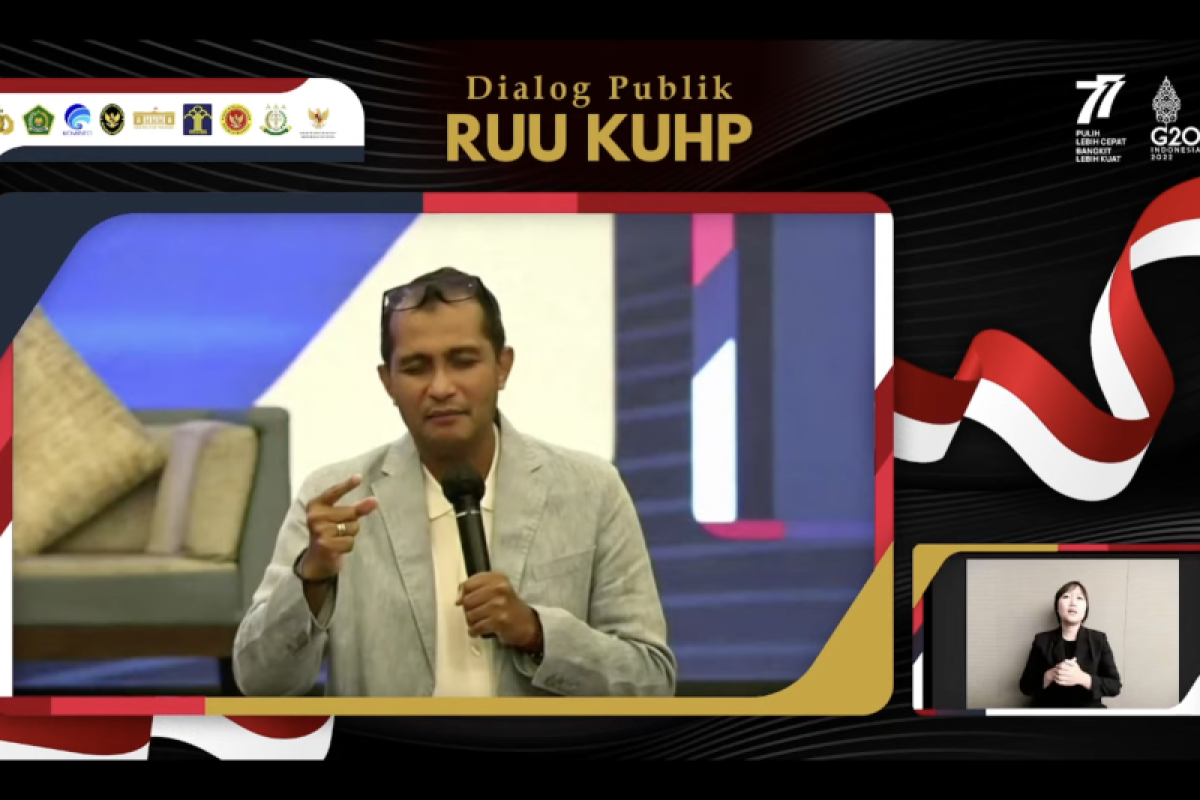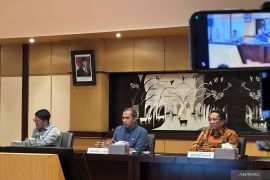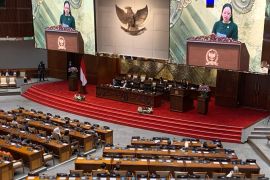Speaking of corrective justice, criminals are still being correctedJakarta (ANTARA) - The Draft Criminal Code employs new criminal law paradigms of corrective, restorative, and rehabilitative justice, according to the Law and Human Rights Ministry.
"In regards to modernization, here we are referring to the new paradigms of criminal law, which are universally applicable," Deputy Minister of Law and Human Rights Edward Omar Sharif Hiariej said during a public dialogue on the Criminal Code Bill, which was accessed from the Communication and Information Ministry's YouTube channel here on Wednesday.
The new criminal law paradigm no longer uses criminal law as a legal means of revenge. According to Hiariej, three types of justice can be enforced under the new criminal law paradigm—corrective justice, restorative justice, and rehabilitative justice.
"Speaking of corrective justice, criminals are still being corrected. Criminals are still being subjected to sanctions, but they are not only being given sanctions. They are also being corrected," he informed.
The improvement of perpetrators involves rehabilitative justice. Perpetrators undergo rehabilitation in order to correct their actions so that the crime is not repeated.
Then, there is the enforcement of restorative justice, which is meant to heal victims of crimes, Hiariej said.
The Draft Criminal Code does not only focus on correcting the actions of criminals, but also focuses on fulfilling the rights of victims, he informed. Moreover, it also prescribes the rehabilitation of victims of crime to support their recovery process.
“Thus, corrective justice is for the perpetrator, restorative justice is for the victim, and rehabilitative justice is for both perpetrator and the victim," he informed.
Hiariej said that there are nuances to decolonizing the Criminal Code. Under the current Criminal Code, imprisonment is the primary punishment; whereas in the Draft Criminal Code, imprisonment remains the main punishment, however, it is not the ultimate punishment.
Article 57 of the Draft Criminal Code states that in the event that a criminal offense is subjected to alternative primary punishment, the imposition of a lighter primary sentence must be prioritized should it be considered appropriate and if it could support the achievement of the goal of the sentencing.
"The lighter penalties include supervision crimes and social work crimes," he added.
Related news: Need public inputs to perfect draft criminal code: deputy minister
Related news: Ministry moves to publicize draft criminal code prior to ratification
Related news: Ministry invites people to discuss Criminal Code Bill
Translator: Putu Indah S, Mecca Yumna
Editor: Sri Haryati
Copyright © ANTARA 2022












